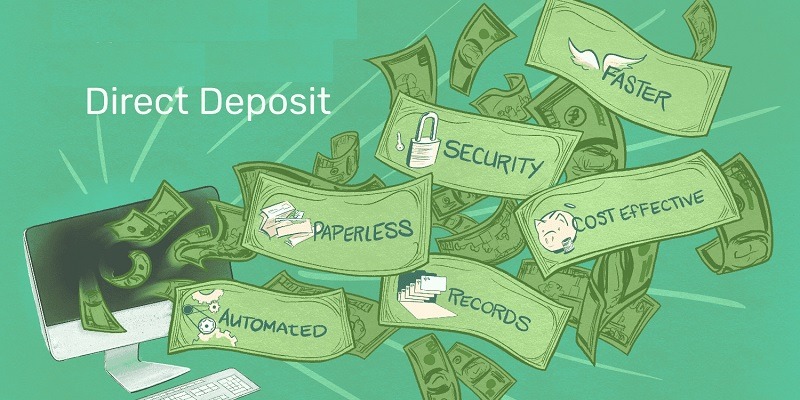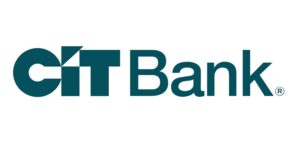 Not sure what direct deposit is? Well, it is simply when money is put straight into your checking or savings account. Generally, people will do this instead of issuing a check for money that they owe.
Not sure what direct deposit is? Well, it is simply when money is put straight into your checking or savings account. Generally, people will do this instead of issuing a check for money that they owe.
Many businesses are also set up to send their payroll out through this method. This helps prevent checks from getting lost in the mail. In this post we’re going to go over what direct deposit is, so continue reading to learn more.
What Is Direct Deposit and How Does It Work?
To put it simply, direct deposit is an electronic payment that payers issue to go from their bank account, through the Automated Clearing House network.
Once the payment is processed, it is routed into the payee’s bank account. The Automated Clearing House is a type of program that the Bureau of the Fiscal Service and is the primary system that agencies use for ETFs, or electronic funds transfers.
How To Set Up Direct Deposit
There are many ways to set up direct deposit which leads to different procedures and requirements for each of those ways. Your employer may even set it up for you if they are partnered up with a financial institution.
Steps To Set Up Direct Deposit
Normally, there are steps that don’t change no matter what option you decide to go with regarding setting up your direct deposit. Here is an overview of some of the most common steps:
- Verify that your financial institution can accept ACH payments.
- Ask your employer if it offers employees the ability to receive paychecks via direct deposit.
- If your employer offers direct deposit, ask for a direct deposit authorization form.
- Complete and return the direct deposit authorization form to your employer.
- Monitor your bank account to make sure you are successfully receiving your payments.
Additionally, if you’re trying to sign up for direct deposit for other funds, you will need to provide the bank name, the routing number, and the checking account number for the check.
What Can Be Deposited Directly Into My Account?
The most common thing that is associated with direct deposits are paychecks. However, nearly every form of payment that you receive can be deposited through this method.
If you have a tax refund, it can be direct deposited into your account, which will decrease the time it takes for the tax refund to be available to you.
How Direct Deposits Benefit the Bank
You might be thinking that direct deposit is such a great tool and is so convenient for you, but what does the bank get out of all of this? Direct deposit, in a way, gives banks some security because it means any overdraft fees that you may accrue gets paid off. However, if you are constantly overdrawing accounts, then it’s best to just receive your paycheck physically so that you can manage your money better.
Banks will try and persuade you to enroll in direct deposit by offering free checking. They might also waive minimum balance requirements. Still, you should check with your bank to see if you can qualify for any of these benefits.
Signing up for Direct Deposit: Considerations
Remember that when you close your old checking or savings account, you will need to change your account number with your job to make sure all the funds go to the right place. Figure out how long it takes to process the paperwork and allow that amount of time to pass before closing your account.
A good tip is to keep the account open until your direct deposit has gone into your new account. Although it makes things slightly more troublesome when closing your account, the initial inconvenience will be worth it when dealing with your direct deposit in the future.
Direct Deposit With a Credit Union Account
Credit unions are very similar to banks because they allow you to have money direct deposited into your account.
In fact, some businesses will have an employee credit union and will require employees to deposit their paycheck into that account.
Although you have to have your money deposited into that account, you can always set up a transfer or withdraw that money on the day it is deposited.
Advantages of Direct Deposits
One of the biggest advantages of direct deposits is convenience. With direct deposit you don’t have to make as many trips to the bank since your money will just be put directly into your bank account.
Also, it will prevent any holds or delays for large deposits since will be automatically transferred into your account. To help you save money, you can even set up automatic transfers, so that when you get your paycheck, a portion of it will be transferred over to your savings account.
Once the direct deposit hits your account, you will not have to worry about any holds and all your funds will be available to you.
Disadvantages of Using Direct Deposit
The main disadvantage of using direct deposit is that if you have taken too much money out of your account, the money that you deposited will be used to essentially pay off the overdrawn amount.
However, if you have not overdrawn your account, there aren’t any real disadvantages of using direct deposit. In fact, it can save you money and time. Before you spend the money, it is important to check to see if your funds have been properly deposited into your account.
 |
 |
Bottom Line
Overall, when you’re deciding to enroll in direct deposit, be sure to follow the guide we’ve listed.
This makes sure that you don’t run into any issues when setting up direct deposit for your bank account. Be sure to follow and take our steps to avoid any fees! Check out our Best Bank Promotions & Bonuses as well as more Bank Guides here at HMB!




Leave a Reply